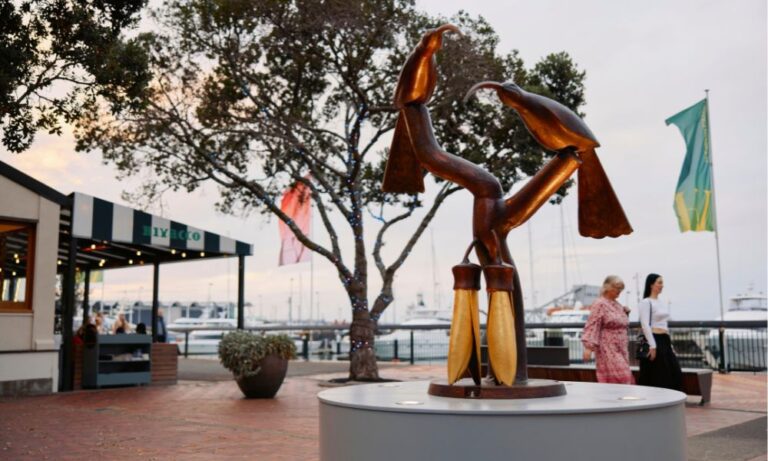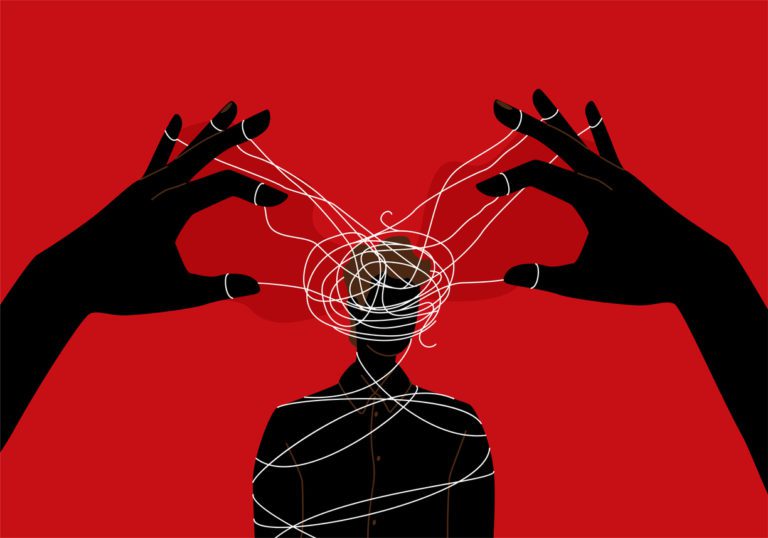The feeling was with her all night, like a heavy rock in the middle of her gut. She couldn’t quite name it but it was bad and put a dark shadow over last night. What was it telling her? That she was redundant, unnecessary, an unwanted presence?
The evening had started well. All the kids were there, even the baby and her new daughter in-law and the 21-year-old’s boyfriend, although he is part of the family now. Jonno had made a wonderful fire and the barbecue pork was delicious, although the twins insisted on having vegetarian rissoles. That annoyed her, she had to admit, but not as much as Barbara’s fanatical veganism. It was lucky she was overseas as she was so preachy about being a vegan, didn’t just come and quietly bring her own food but complained loudly when there was “nothing around here that some poor animal didn’t have to suffer for”. And Rosie played her new song to everyone. It was really impressive although the words were a bit too suggestive and she didn’t like the use of rude words. These days everyone said the f-word as if it was an essential component of the English language. That still shocked her.
But it was her daughter’s comment that stung. “Mum,” she had said, “don’t you realise that not everyone sees the world like you do.” That was in response to her noting that Cameron had come to the table in his tiny work shorts and no top – so you couldn’t help seeing his nipple ring. She had been horrified. Her son chimed in, agreeing with his sister that “things are different now” and her 14-year-old granddaughter said, in that dogmatic way she had, “don’t you know getting a piercing is what everyone does.” But it was her daughter’s patronising tone that hit her and for the rest of the night she was silent. She kept smiling, of course, and brought out the pavlova and served it to all takers, but she kept her thoughts to herself. Not that anyone noticed. They were so busy laughing, talking about things that she couldn’t follow and not one of them asked if she was okay or if she’d like help. They cleared the dishes and put the food away, and by the time they’d all gone home and she had set the dishwasher going she had forgotten exactly why she was feeling upset.
She woke, as usual, in the early hours of the morning and there it was again, the stone in her gut, a grey and cold lump of emotion. She a tried to find a name for the feeling – was it anger, grief, loneliness, despair? She couldn’t. She sat up and meditated, or tried to. It didn’t work. She got up and made a hot drink and turned on the electric blanket when she got back into bed. The feeling was still there and as elusive as ever when she fell into a disturbed sleep.
The next day she brushed the memory aside and got on with giving the house a good cleaning. She hated killing spiders, indeed any little creature, but it did mean the daddy-long-legs’ had festooned cobwebs in most rooms so she got rid of them. She moved all the furniture and in the process found one baby’s dummy, pacifiers they called them these days, one white sock, a crumpled tissue and old peanuts. They were hidden down the backs of chairs and under the heavy old sofa which she was finding hard to move these days. She dusted the surfaces and carefully wiped the glass on the photos that were displayed, some would say cluttered, on her shelves and cupboards. There was not one inch, or should she say centimetre, of space for another photo and she wondered where to put the ones of the new baby that were sure to arrive in the next few weeks.
This one was a girl and that made three boys and four girl grandchildren. And that got her thinking of last night. Again. And the feeling swept over her so strongly that she stood rigidly on the spot, still holding a duster in one hand and a photo in the other. “I can’t stand it,” she said to herself. “This being taken for granted, having everything I hold dear ridiculed and laughed at. None of them, not even Jenny, gives me space to have an idea, to tell a story, to recall an event. I can’t even tell them about the time Doug and I drove to Queensland and the car blew up and we had to camp on the roadside for two days. They butt in with their superior voices, “We know that, Mum. You’ve already told us … don’t repeat yourself … you’ve got food on your mouth … stand up straight … your shirt’s crooked … and it’s got food all over it … this plate’s dirty … don’t shuffle when you walk …” And then the grandchildren chime in criticising the way she eats while burying their faces in the iPads and phones. Their parents were as bad, as soon as they arrive checking their phones for messages and sending texts to husbands, wives and friends instead of talking to those around them. Her son hadn’t looked her in the eye for months; they were so rude. She sank into a chair, dropped the photo and didn’t care when the glass broke. “I’ve got to do something,” she thought to herself, “I’ve become a doormat and I’m sick of it.” She looked for her mobile and couldn’t see it anywhere so rang it on her landline. It buzzed from under her pillow. She had put it there when listening to the podcast this morning. Picking up the phone she went outside and dialled Penny’s number. No answer. She tried Cath but that was engaged and finally got on to Marg. “Oh bugger,” she thought, “I can’t even rely on my friends, I’ll try George instead.” George was an old friend who had helped her with her finances and decision-making over many years. He used to do her mother’s taxes and had become her mentor and trusted friend when making decisions, big ones. She rang his mobile and he answered. After a brief conversation, she hung up and found her keys. Luckily, she’d put them in their proper place. She went to the bathroom to brush her hair and put on some lipstick, muttering to herself: “They even say bathroom for going to the toilet. We said lav.” And that made her smile as she remembered the time on a country train when she’d mistaken the cubicle labelled lav for a toilet and realised, too late, that she was sitting on a hand-basin. The toilet was labelled WC. “It wouldn’t be any good telling them that,” she grumbled. “They haven’t got any sense of humour, and they don’t care.” The more she thought about it the more upset she became. Or was it anger she was feeling? “But that’s stupid,” she chided herself. “It’s not up to them to fit their lives around me. I’m in charge of my life and it’s not as though I haven’t got any money. The pension’s a great help but there’s still the super that I can use while I’m reasonably fit and healthy – and I’ve a few more good years left. Mum and Dad both died in their nineties and I can still garden and bushwalk with the best of them. I did have to give up riding a few years ago, but that was because Apache became lame and he’d been so gorgeous I didn’t want to get another one and start all over again. I know I’ll have to give up my licence one day, but at the moment it’s fine.”
There was something else, too. Her family, immediate and extended, all got on well and had a vested interest in doing so. She had often talked with her children and their partners about how easy it is for a family break-up to happen. It only takes one person to get shitty or want more than their fair share or to unfairly criticise the others. The worst was children trying to get their parents’ money and, although her son was always threatening that it was “time to put her in a home”, this was done in the best of humour, a kind of reverse way of saying he loved her. All this was true, but how she was living at the moment wasn’t enjoyable. She had now been retired for 10 years and there were still things she wanted to do. Not quite a bucket list, more a longing that was not yet fulfilled. She’d taken up writing in the last few years.
She longed to write about her life. The kids mightn’t listen now or for the next few years, but when she was no longer here they would become curious. As they reflected on their own experiences and the rapid changes taking place in the world they would become more interested in the past, including her past, which was also theirs.
She pulled on her coat and got in her car. That was something good in her life, her car. It was new and orange and she loved it. Oh, and the birds in her garden, she smiled watching the rosellas courting. George was seeing a client when she arrived and she sat waiting surrounded by efficient young women and men who smiled politely and asked if she needed help. She’d heard on the radio that these days the word “efficient” was old-hat and tried without success to remember what was replacing it. There was no doubt that language was changing, as it always had, but it amazed her that it had changed so rapidly in her lifetime.
At that moment George came out of his office and greeted her with a kiss. “That’s another thing,” she noted to herself, “people kiss and hug a lot more than we used to.” She had even hugged her doctor on the last visit before he went overseas. That was a change she liked. “Let’s go for lunch,” said George, taking her arm as they walked through the glass doors embossed with his name. Over lunch she discussed her idea, questioned whether she had the money for it and if he considered it a good risk. He did. “It’s your money,” he said, “to look after you. You don’t need to leave any, they will get the house. It all depends on getting the right deal and I’ve got a friend who can help you with that.”
Feeling joyous, she waltzed out of his office and immediately rang her sister Maryanne. She was disappointed to hear a message saying, “I can’t answer the phone right now but if you leave a brief message I’ll call you back”. “Damn,” she thought, “I’d forgotten she was on a writing retreat.” As soon as she got home she sent an email: “Hi Maryanne, I’ll do it if that cottage is still available. Let me know tonight if possible, I can’t wait.” Maryanne lived on the coast, a bit further north, in the heart of the writing community. She had stayed with her many times and Maryanne had been nagging her to come and live there, especially as there was this “perfect little cottage just over the road from me”. Today she knew that was what she would do. She needed to be with people who appreciated her as an adult, with sound ideas, lots of experience and a touch of wisdom. Much as she loved her family this was not the time to be with them. That night she slept soundly and dreamt of her new cottage surrounded by trees, the ocean and friends, lots of friends. There was no sign of that heavy rock, in fact she felt happy.
About our Short Story author:
Peta Heywood
Peta Heywood lives with her horse and three dogs in Melbourne’s Green Wedge. “It is a beautiful area and fills me with delight nearly every day – the exception being hot summer days with wild north winds and high fire danger.” Since childhood, when she rode broomsticks, she has loved horses. She lent her feisty Anglo Arab to a younger friend and kept instead a smaller horse once owned by a granddaughter. She has three sisters and they each have a doctorate. Since retiring she has taken the opportunity to write, something she has always loved. Her first stories were written when she was about 10 years old, had Morag and Christopher as the heroes and were probably rehashes of Enid Blyton’s The Famous Five.







